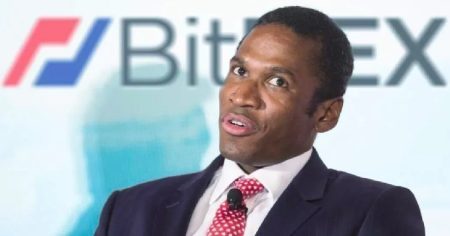Florida’s Chief Financial Officer (CFO) Jimmy Patronis has unveiled a pioneering initiative to explore the feasibility of incorporating gold and silver bullion as legal tender within the state. This ambitious undertaking, spearheaded by the Florida Department of Financial Services (FLDFS), aims to diversify currency options available to Floridians and provide a safeguard against economic volatilities, particularly inflation and the potential introduction of central bank digital currencies (CBDCs). The study marks a significant departure from the current status of gold and silver, which are primarily recognized as investment assets. Patronis champions the historical stability of these precious metals, advocating for their integration into the state’s monetary system. He believes that utilizing gold and silver as legal tender offers a practical solution to the challenges posed by the current financial landscape.
The proposed framework centers around creating a tax-advantageous environment for transactions involving gold and silver bullion. This involves exempting these precious metals from property taxes and eliminating tax liabilities when exchanging bullion for other forms of legal tender. This strategy seeks to incentivize the adoption of gold and silver in everyday transactions without imposing additional financial burdens on Florida residents. The initiative is born out of growing apprehension surrounding inflation and existing monetary policy, with Patronis citing the current inflationary environment and the potential risks associated with CBDCs as primary motivators for seeking alternative currency solutions. He argues that promoting currency competition is crucial for ensuring economic stability and providing families and businesses with the tools they need to thrive.
The core rationale behind this initiative lies in the historical resilience of gold and silver against devaluation during periods of inflation. By offering an alternative to Federal Reserve notes, these precious metals could bolster the financial security of Floridians and cultivate a robust, decentralized market that is less susceptible to manipulation. The study will delve into the historical precedent of gold and silver as currency, examining their regulatory implications and potential integration into contemporary financial systems. This includes investigating private sector endeavors to establish bullion-backed digital currencies and evaluating their potential role in state and local transactions.
Patronis envisions this initiative as a preemptive measure against excessive financial control. He posits that the introduction of gold and silver as legal tender could stimulate healthy currency competition, mitigating the potential drawbacks of future CBDC implementations. This approach aligns with free-market principles, emphasizing individual choice and market-driven solutions over centralized authority. By empowering individuals with greater control over their financial choices, the state aims to foster a more resilient and adaptable economy.
The study’s findings could potentially position Florida as a trailblazer in monetary innovation, paving the way for other states to consider similar measures. By harnessing the intrinsic value of gold and silver, Florida seeks to bolster its financial infrastructure and promote economic freedom and resilience among its citizens. This move represents a bold experiment in monetary policy, potentially challenging traditional notions of currency and offering a tangible alternative to the prevailing fiat system. The ultimate success of this initiative will depend on the study’s findings and the subsequent legislative actions taken by the state.
This initiative has the potential to reshape the financial landscape of Florida, offering a tangible alternative to the existing fiat currency system. The study’s findings could serve as a blueprint for other states considering similar measures, potentially sparking a nationwide movement towards greater monetary diversity. By embracing the historical stability of gold and silver, Florida aims to create a more robust and resilient financial ecosystem, empowering individuals and businesses with greater control over their economic destinies. This endeavor reflects a growing skepticism towards centralized financial control and a renewed interest in sound money principles. The future of this initiative will depend on the study’s outcomes and the subsequent legislative actions undertaken by the state, potentially setting the stage for a significant shift in the American monetary landscape.







![Standard Chartered Cuts Bitcoin and Ethereum Forecasts, Predicts Bottom by [Date] at $[Price]](https://commstrader.com/wp-content/uploads/2026/02/3f2a2e40b5435ea86ade84c25b7ee76c02e7fe3c-450x300.jpg)







